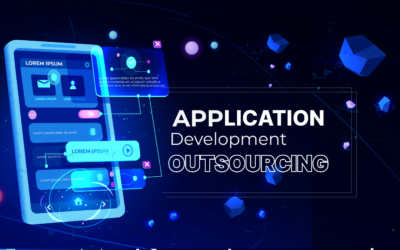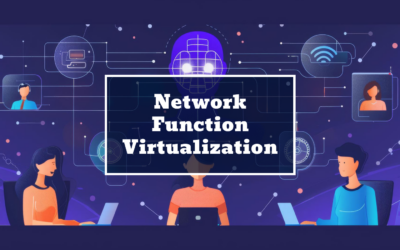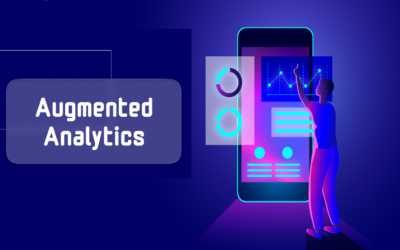How to Select the Best AI Development Company in 2024

Introduction
In today’s digital landscape, artificial intelligence (AI) has become a cornerstone of technology that drives innovation and transformation across industries. From automating mundane tasks to providing deep insights through data analytics, AI’s applications are both vast and versatile. With the AI market poised to grow from USD 184 billion in 2024 to an astounding USD 826 billion by 2030, as reported by Statista, businesses are recognizing that the time to invest in AI technology is now.
However, leveraging AI for business growth is no simple task. It requires specialized knowledge, advanced technological capabilities, and robust frameworks, which can only be effectively implemented with the right AI development partner. This blog aims to guide you in selecting the ideal AI development company in 2024 while ensuring you understand the key technologies behind AI, the advantages of outsourcing AI development, and the critical pitfalls to avoid.
Tips to Select the Right AI Development Company in 2024
Partnering with the right AI development company is critical to ensuring that your AI projects are executed efficiently. Before diving into selecting an AI partner, it’s important to grasp what AI development entails and understand the key technologies that underpin its success.
What is AI Development?
AI development refers to creating software solutions that incorporate artificial intelligence algorithms to perform tasks traditionally requiring human intelligence. These tasks include decision-making, speech recognition, data analysis, and more. To build AI systems tailored to business needs, AI development companies use cutting-edge technologies such as machine learning, natural language processing, and deep learning.
Let’s break down the technologies that power AI systems:
Key AI Technologies
1. Natural Language Processing (NLP):
NLP enables machines to understand, interpret, and respond to human language. This is particularly useful for developing applications like:
- Chatbots and Virtual Assistants: These tools can engage with customers in real-time, improving customer experience.
- Sentiment Analysis: Businesses can gauge customer sentiment and opinions based on their communication and social media engagement.
- Speech Recognition: NLP-powered systems can convert spoken language into text, assisting with tasks like transcription or virtual customer support.
- Data Redaction and Analysis: NLP tools can detect and redact sensitive information from large datasets, enhancing data security.
NLP makes AI more user-friendly and interactive, fostering seamless communication between machines and humans.
2. Machine Learning (ML):
Machine Learning is a subset of AI that allows systems to learn from data, recognize patterns, and improve over time without needing constant programming. Some applications of ML include:
- Recommendation Systems: Websites and applications like e-commerce platforms use ML to recommend products based on customer preferences.
- Fraud Detection: Financial institutions leverage ML to detect unusual patterns and predict fraudulent transactions.
- Robotic Process Automation (RPA): ML automates repetitive processes, enhancing operational efficiency.
- Automated Stock Trading: ML models can predict market trends and execute trades autonomously.
ML’s ability to self-improve over time makes it crucial for applications that rely on high accuracy and evolving data sets.
3. Predictive Analytics:
Predictive analytics uses statistical models, machine learning, and historical data to forecast future trends. In AI applications, predictive analytics offers benefits like:
- Cash Flow Forecasting: Businesses can predict cash flow needs, helping in financial planning.
- Behavioral Targeting: Companies can predict customer preferences and optimize their marketing strategies.
- Malfunction Prevention: Predictive models can foresee equipment failures, allowing for preventive maintenance.
- Pricing Strategy Optimization: Retailers can dynamically adjust prices based on predicted demand and market trends.
Predictive analytics empowers businesses to make informed decisions, reduce risks, and seize opportunities proactively.
4. Deep Learning:
Deep learning is an advanced form of machine learning that uses artificial neural networks to simulate human brain processes. Key applications of deep learning include:
- Visual Art Processing and Image Recognition: AI can recognize and categorize images, making it ideal for medical diagnostics and automated inspections.
- Drug Discovery and Bioinformatics: Deep learning models help in discovering new drugs and analyzing biological data.
- Recommendation Systems: Deep learning can enhance recommendation algorithms by understanding more complex user preferences.
Deep learning excels at solving complex problems with large datasets and mimicking human decision-making with higher accuracy.
5. Computer Vision:
Computer vision enables machines to interpret and understand visual information from the world, such as images and videos. Use cases include:
- Image Classification: AI systems can label images into predefined categories (e.g., identifying tumors in medical scans).
- Object Detection and Tracking: This is vital in industries like autonomous driving, where vehicles need to detect and track objects in real-time.
- Content-Based Image Retrieval: Companies use AI to search and retrieve images based on visual content rather than text descriptions.
Computer vision is widely adopted in industries like healthcare, automotive, security, and agriculture, where real-time visual interpretation is necessary.
Benefits of Hiring an AI Development Company
Opting for a professional AI development company over freelance developers or internal teams has several significant advantages:
1. Expertise in AI Technologies:
AI development companies bring expertise in cutting-edge AI technologies like NLP, ML, and deep learning. Teams at firms like Stridefuture Technologies are well-versed in the latest AI trends, tools, and best practices. They provide valuable insights and guidance, ensuring your AI project is executed with the highest standards and precision.
2. Bespoke AI Solutions:
AI companies customize solutions tailored to your business’s specific goals. Whether you need automation for customer service or data-driven analytics, they can create scalable AI systems aligned with your industry’s requirements. This level of customization ensures that the AI solution integrates seamlessly into your operations.
3. Cost Efficiency:
Working with an AI development company can be more cost-effective than maintaining an in-house team. Outsourcing your AI needs reduces overhead costs like salaries, benefits, and training while giving you access to top-tier talent. The result is faster project completion with fewer risks.
4. Accelerated Development Cycles:
AI development firms streamline the AI project lifecycle, ensuring quicker time-to-market. This is crucial for staying competitive in rapidly evolving markets. Their well-established processes allow them to deliver quality products faster than freelance developers or in-house teams with limited AI experience.
5. Minimal Risks and Errors:
AI development companies use rigorous testing methodologies to identify potential risks early in the project lifecycle. Their experience allows them to handle complexities like large-scale data processing and optimization challenges, ensuring that the final product is stable and reliable.
6. Data Management and Security:
With increasingly stringent data privacy regulations, managing sensitive data has become more critical. AI development companies prioritize robust data security protocols and comply with regulations like GDPR. They ensure that your AI systems are designed to handle data securely, preventing potential breaches.
Common Pitfalls to Avoid When Choosing an AI Development Company
While selecting an AI development partner, businesses often make critical mistakes. Here’s what to avoid:
1. Insufficient Research:
Choosing the right AI partner requires thorough research. Many businesses rush the selection process, swayed by flashy marketing or price alone. It’s essential to evaluate the company’s portfolio, case studies, and client testimonials to ensure they have the necessary expertise.
2. Neglecting Industry Expertise:
Every industry has unique challenges. Ensure the AI development company has experience in your field and understands the specific needs of your business. Choosing a company without relevant industry expertise can lead to costly misunderstandings and project failures.
3. Ignoring Post-Development Support:
The AI development process doesn’t end with deployment. Continuous support and maintenance are crucial for ensuring your AI system remains relevant and functional over time. Ensure the company offers post-launch support for updates, bug fixes, and ongoing improvements.
4. Undefined Data Security Protocols:
Data security should be a top priority when selecting an AI development partner. Ensure the company adheres to strict data protection standards, including encryption and compliance with data privacy laws. Inquire about their data handling practices and request a clear understanding of their security protocols.
5. Poor Communication:
Effective communication is essential for successful project execution. Misunderstandings and misaligned objectives can lead to delays and cost overruns. Ensure the AI development company maintains clear and consistent communication throughout the project.
Key Questions to Ask Before Selecting an AI Development Company
Before making a final decision, ask potential AI development partners the following questions:
- What are their core competencies and areas of expertise?
- Are they a native AI company or a general software development firm?
- Which AI architectures and technology stacks will they use for your project?
- Can they provide case studies or examples of previous AI implementations?
- How do they ensure project quality and alignment with your business goals?
- Do they offer customizable AI solutions?
- Can their AI models integrate with your existing systems?
- What will the total cost of development be, and are there any hidden fees?
Conclusion
Artificial Intelligence is reshaping industries and driving digital transformation globally. Whether you are in healthcare, retail, manufacturing, or legal services, integrating AI into your operations can provide a competitive edge. However, successfully harnessing the power of AI requires a knowledgeable development partner that understands both the technology and your industry-specific challenges. By choosing the right AI development company and avoiding common pitfalls, you position your business for long-term success in an AI-driven world.
Now is the time to make strategic investments in AI development to future-proof your business and unlock new growth opportunities.
Are you looking for any IT Services such as Software Testing, Web design and Development, Professional/Staff Augmentation Services, Cloud Computing, Mobile App Development, Digital Marketing Services, and more? Connect Stridefuture Technology, which helps to meet your requirements.
{StrideFuture Technology, a full-service company specializing in Software Solutions and Consultancy services. We specialize in Personal, Business, IT Services, Software Testing, Web design and Development, Mobile App Development, Digital Marketing Services, and much more you can dream Virtually with us! Reach out for more service at StrideFuture Technology.}









